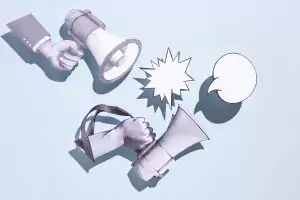
✅ AI Essay Writer ✅ AI Detector ✅ Plagchecker ✅ Paraphraser
✅ Summarizer ✅ Citation Generator
Hi everyone.
What I noticed a rather long time ago is that people for whom the English language is not their native language tend to make mistakes with the easiest things. They can use tenses correctly, they have no problems with subject-verb agreement, and so on—but there is always that one basic thing that messes with their minds. And according to my observations, for many people, English articles is this small problem (even for native speakers). So, I thought it would be nice of me to post a quick and easy guide on how to use articles properly.
Fortunately, English has only two types of articles: definite (a/an) and indefinite (the). The latter, by the way, is the most frequently used word in the English language. Here are some rules that will help you use them effectively and correctly.
– As the word “indefinite” suggests, “a/an” is used together with countable nouns (only!) that a speaker/listener/reader does not know much about, or hears about them for the first time.
e.g. My brother is reading a book (but I don’t know what its title is, or what it’s about)
– Although “a/an” means “one,” you can use it when you generalize, talking about all things of one kind.
e.g. A woman always knows what she wants.
– Use “a/an” when speaking about a person who belongs to a certain organization, ethnicity, group of people, and so on.
e.g. John is a Native American, but he does not know much about his origins.
– You do the same when you talk about someone’s profession.
e.g. Jill is a coroner, and not one of her family members is excited about this fact.
– When you use “the,” you assume that what you talk about is already known to your audience (because you’ve already mentioned it, or because it is the only person/object of this kind in its nearest surrounding).
e.g. Remember the girl I told you about? Well, she got married.
e.g. We ran to the church, because it was the only place where we could get help.
– You should use “the” when speaking about an object/person that is one of a kind.
e.g. The Queen of the United Kingdom has always dressed with style and elegance.
– “The” is used with superlative adjectives (because, once again, these adjectives mark the uniqueness of nouns they refer to).
e.g. My son is the smartest kid in his class.
– “The” is necessary when talking about elderly, rich, poor, and unemployed people, referring to them as social groups.
e.g. The gap between the rich and the poor broadens every year.
– “The” is used with systems or services, country names (only those that are plural and/or including the words states, republic, kingdom), names of geographical objects, families, organizations, and newspapers.
e.g. I would like to live in any of the states of the United Kingdom.
e.g. The Carpathian Mountains are not too high; nonetheless, they are incredibly beautiful.
e.g. The New York Times is a well-known and respected newspaper.
e.g. The United Nations does a great job in protecting the rights of people all over the world.
Remember these rules, and using articles properly won’t be a problem for you anymore. Good luck!
Follow us on Reddit for more insights and updates.




Comments (0)
Welcome to A*Help comments!
We’re all about debate and discussion at A*Help.
We value the diverse opinions of users, so you may find points of view that you don’t agree with. And that’s cool. However, there are certain things we’re not OK with: attempts to manipulate our data in any way, for example, or the posting of discriminative, offensive, hateful, or disparaging material.